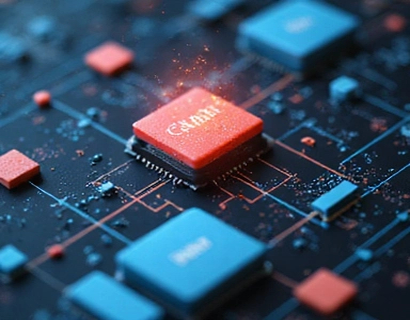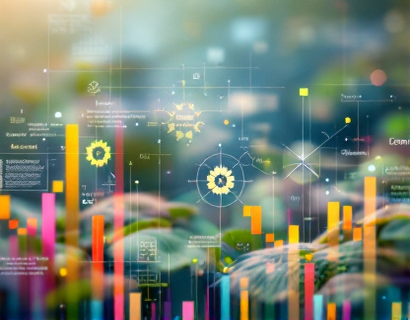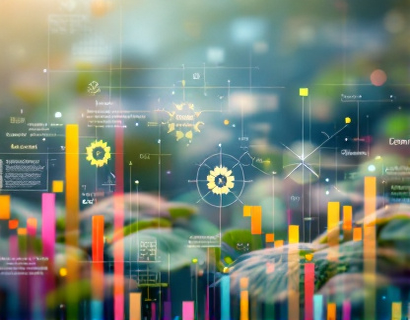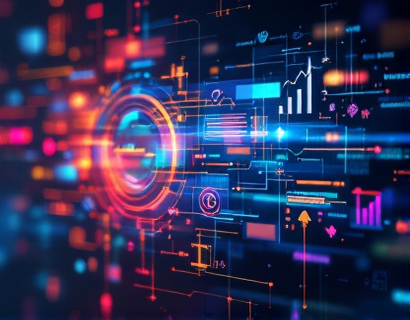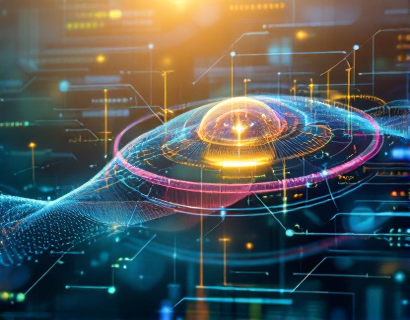Transforming Industries with Advanced Tech: The Convergence of Crypto and AI
The intersection of cryptocurrency and artificial intelligence (AI) is ushering in a new era of technological advancements, fundamentally altering how we interact with digital systems and experiences. This convergence is not just a technological curiosity but a transformative force that is redefining industries across the board. From finance and healthcare to entertainment and beyond, the integration of blockchain technology and AI algorithms is creating enhanced digital experiences that were once the stuff of science fiction.
The foundation of this transformation lies in the unique properties of blockchain technology. Blockchain's decentralized, transparent, and secure nature provides an ideal platform for AI applications that require trust, integrity, and data privacy. By leveraging blockchain, AI systems can operate with a higher degree of autonomy and reliability, ensuring that data is immutable and transactions are verifiable. This synergy between crypto and AI is paving the way for innovative solutions that enhance user interactions and drive efficiency across various sectors.
Enhancing Financial Services with Crypto and AI
One of the most prominent areas where the combination of cryptocurrency and AI is making a significant impact is in the financial sector. Traditional banking systems are being revolutionized through the adoption of blockchain for secure and transparent transactions, while AI is optimizing processes and providing personalized services to customers. For instance, AI-driven algorithms can analyze vast amounts of financial data to detect fraudulent activities, predict market trends, and automate trading decisions. When paired with blockchain, these systems gain an additional layer of security and trust, as all transactions are recorded on a tamper-proof ledger.
Decentralized finance (DeFi) platforms are a prime example of this convergence. These platforms use smart contracts on blockchain to offer a range of financial services, from lending and borrowing to trading and yield farming, all without intermediaries. AI enhances these platforms by providing sophisticated risk management tools, personalized investment advice, and real-time market analysis. This not only improves the efficiency and accessibility of financial services but also democratizes access to traditionally exclusive financial instruments.
Revolutionizing Healthcare with AI and Crypto
The healthcare industry is another sector that stands to benefit immensely from the integration of AI and cryptocurrency. Patient data security and privacy are paramount in healthcare, and blockchain provides a robust solution by ensuring that medical records are secure and tamper-proof. AI, on the other hand, can analyze vast datasets to identify patterns, predict disease outbreaks, and personalize treatment plans. The combination of these technologies can lead to more accurate diagnoses, better patient outcomes, and more efficient healthcare delivery.
Telemedicine platforms are also leveraging this tech convergence to provide remote healthcare services. Blockchain ensures that patient data is securely shared between healthcare providers, while AI-powered chatbots and virtual assistants offer immediate medical advice and support. Additionally, cryptocurrency can facilitate seamless and secure transactions for healthcare services, removing the need for intermediaries and reducing costs.
Transforming Entertainment and Media with Crypto and AI
The entertainment and media industry is witnessing a digital revolution driven by the fusion of AI and cryptocurrency. Content creation, distribution, and consumption are all being transformed through these advanced technologies. AI algorithms can analyze viewer preferences and behavior to recommend personalized content, enhancing user engagement and satisfaction. Blockchain, meanwhile, enables creators to monetize their work directly through tokenized models, ensuring fair compensation and reducing piracy.
NFTs (Non-Fungible Tokens) have become a significant trend in this space, allowing artists and creators to sell unique digital assets with provenance and ownership verified on the blockchain. AI can further enhance this by generating unique digital art pieces, creating immersive experiences, and even composing music. The combination of AI-generated content and blockchain-based ownership verification is reshaping the entertainment landscape, offering new opportunities for creators and consumers alike.
Optimizing Supply Chain Management with AI and Crypto
Supply chain management is another critical area where the integration of AI and cryptocurrency is making a substantial impact. Traditional supply chains are often plagued by inefficiencies, lack of transparency, and fraud. Blockchain provides a decentralized and immutable ledger that tracks the movement of goods in real-time, ensuring transparency and traceability. AI algorithms can analyze this data to optimize logistics, predict demand, and identify bottlenecks, leading to more efficient and cost-effective supply chains.
In industries such as pharmaceuticals and luxury goods, where authenticity and traceability are crucial, this combination is particularly valuable. Cryptocurrency can facilitate secure and transparent transactions between suppliers, manufacturers, and retailers, reducing the risk of fraud and ensuring that all parties are compensated fairly. This not only enhances operational efficiency but also builds trust and reliability throughout the supply chain.
Enhancing Education with AI and Crypto
The education sector is also experiencing a transformative shift thanks to the convergence of AI and cryptocurrency. Online learning platforms are leveraging AI to provide personalized learning experiences, adapting to the needs and pace of each student. AI-powered tutoring systems can offer real-time feedback and support, making education more accessible and effective. Blockchain, on the other hand, can secure and verify educational credentials, ensuring that diplomas and certifications are authentic and easily verifiable.
Cryptocurrency can be used to create decentralized educational platforms where content creators and learners can transact directly, removing the need for intermediaries. This not only reduces costs but also empowers educators and students by giving them more control over their educational resources and financial transactions. The use of blockchain-based tokens can also incentivize participation and engagement, fostering a more dynamic and interactive learning environment.
Building Smart Cities with AI and Crypto
Smart cities are at the forefront of leveraging AI and cryptocurrency to create more sustainable, efficient, and livable urban environments. AI algorithms can optimize traffic flow, manage energy consumption, and enhance public safety through predictive analytics. Blockchain ensures that data is secure and transparent, enabling various city services to operate seamlessly and trustworthily. Cryptocurrency can facilitate peer-to-peer transactions for services such as ride-sharing, energy trading, and community funding projects, reducing costs and increasing accessibility.
For instance, blockchain-based platforms can manage renewable energy credits, allowing residents to buy and sell excess energy directly. AI can optimize the distribution of these resources, ensuring that energy is used efficiently and sustainably. This not only reduces the carbon footprint of cities but also empowers communities to take control of their energy needs and financial transactions.
Challenges and Considerations
While the potential benefits of combining AI and cryptocurrency are vast, there are several challenges and considerations that must be addressed. Regulatory frameworks are still evolving, and the lack of clear guidelines can create uncertainty for businesses and users. Ensuring compliance with data protection laws and financial regulations is crucial to building trust and adoption. Additionally, the technical complexity of these systems requires skilled professionals who can develop, maintain, and secure these advanced solutions.
Scalability is another significant challenge. As the number of users and transactions grows, blockchain networks must be able to handle increased load without compromising performance. Innovations such as layer 2 solutions and cross-chain interoperability are addressing these issues, but ongoing research and development are necessary to fully realize the potential of this tech convergence.
Conclusion
The convergence of AI and cryptocurrency is not just a technological trend but a fundamental shift in how we design and interact with digital systems. By leveraging the strengths of both technologies, we can create more secure, efficient, and user-friendly applications that enhance digital experiences across various industries. As this field continues to evolve, it is essential for tech enthusiasts and early adopters to stay informed and engaged, exploring the endless possibilities that this powerful combination offers.















